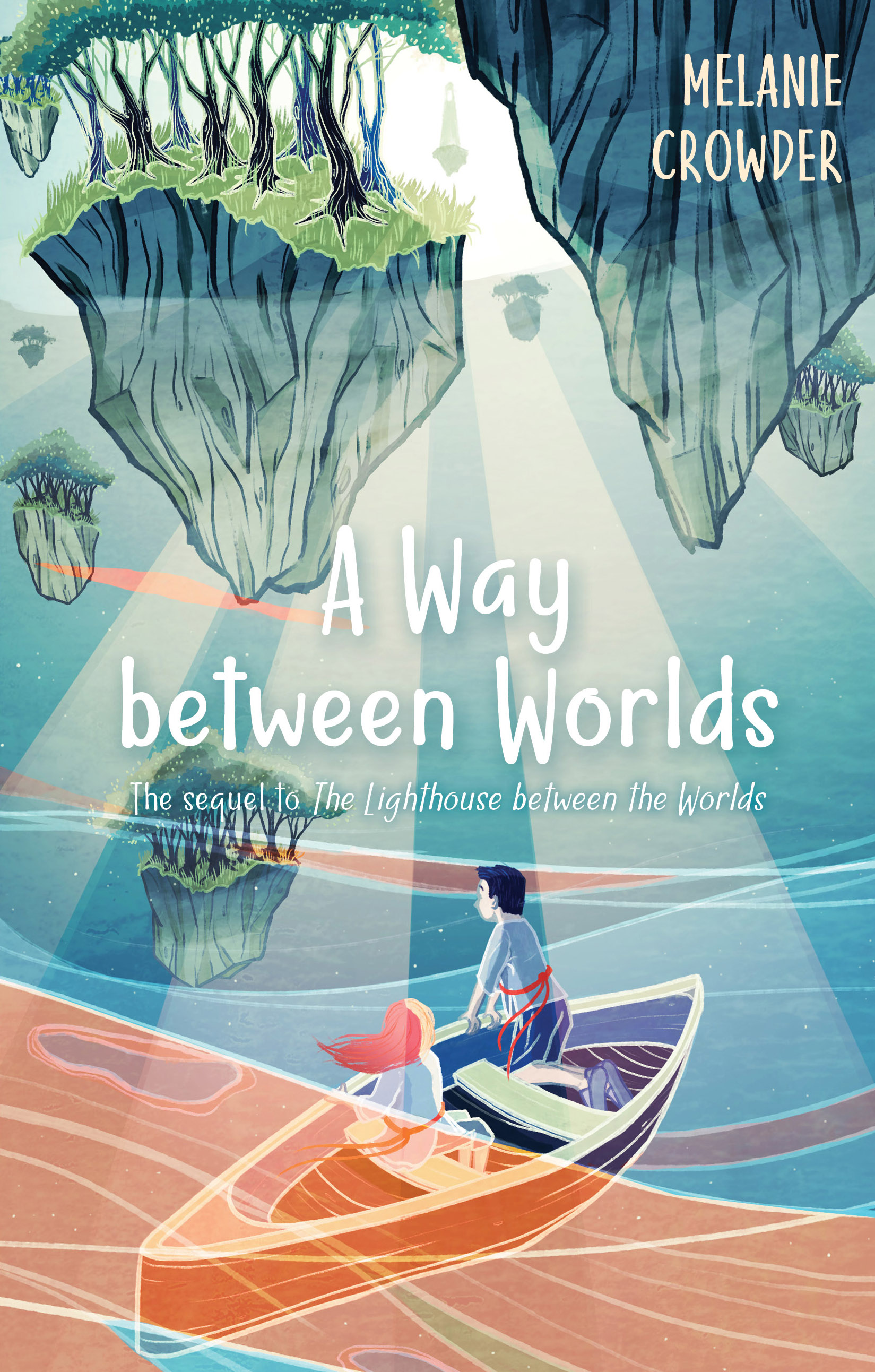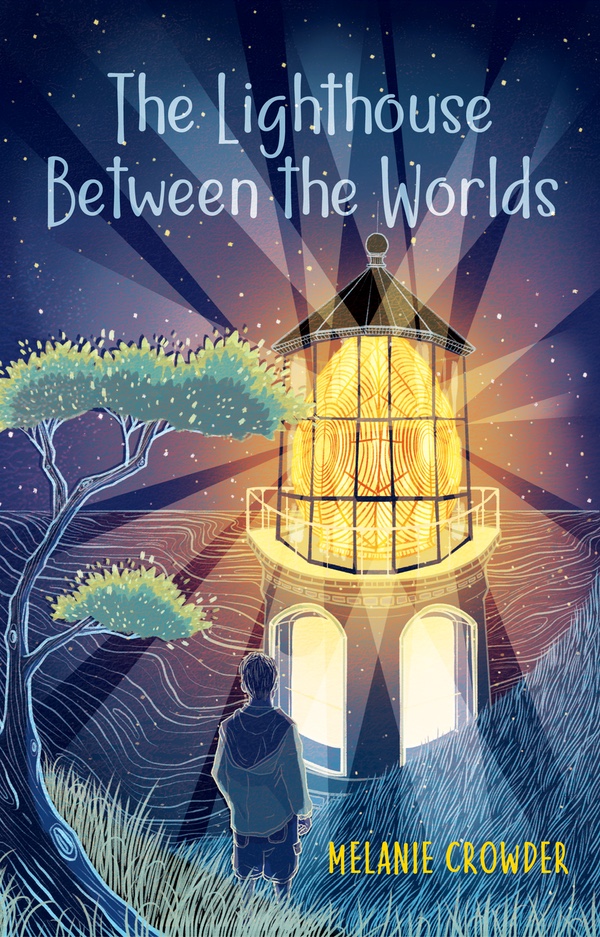There are a million ways to write speculative fiction. It’s one of the reasons I love the genre so very much. Possibility is infinite. Potential is limitless.
Personally, rather than looking beyond our world for inspiration, I prefer to narrow my focus; to peer even more closely at our own world. For me, nature is magic. I’ve always been an outdoorsy person. I’ve always preferred groves of trees to clumps of buildings; the sound of moving water to the happy buzz of conversation in a coffee shop; the tapestry of color creeping up the side of a mountain to anything you might see hanging on a wall.
Cover art by Kailey Whitman
When it came time in planning this world hopping duology to create seven new worlds and a magic system for each, I looked for inspiration in Earth’s wilderness. In the first book, THE LIGHTHOUSE BETWEEN THE WORLDS, my protagonists visit Earth (of course), Somni, the world of dreams, and *spoiler alert* the floating islands of Caligo. Then, in the second book, A WAY BETWEEN WORLDS, the reader gets a glimpse of Vinea, the green world, and Maris, a world covered entirely by oceans.
And it’s the magic within that watery world that I want to talk about today. Here’s how the protagonist’s mom described that world (through a sentimental bedtime story) in the first book:
Cuddle up, sweet boy. Do you need another blanket?
Remember that time we visited the aquarium, you and your dad and me? We stopped for chowder on the way there, and saltwater taffy on the trip home?
Ha! I thought you’d remember that part…
Think back to the aquarium. Remember that huge room with the bones of a gray whale suspended from the ceiling? And if you pressed your ear to one of the cones set into the wall, you’d hear a recording of a whale singing in the deep. Ah—so you do remember!
What would you think if I said there is a world out there where the oceans themselves sing in concert with the creatures swimming beneath? And what if I told you there’s nothing else on that entire world—just one unending sea, waves unbroken by land or wind or contrary currents.
Not many humans live on that world. It’s not meant for us, not really. It’s meant for the swimming things below. The people who live in the floating cities of Maris have developed lungs twice as large as we have on Earth. They have thick, lustrous brown skin that drinks in the sunlight glancing off the waves, and a layer of blubber beneath. But those aren’t their only adaptations. As the generations passed, they learned to listen to the ocean’s song. And after a time, they began to sing back.
You think I’m teasing? Try it. While your eyes soften and your mind stills, listen with everything you have. Listen for the song of the sea.
Readers will discover in the second book that the ocean’s song on Maris is sentient, and without giving away any more spoilers, I’ll simply say that it plays an essential role in the duology’s conclusion.
If you ask me, the best fantastical worlds are the ones that seem simultaneously foreign and entirely natural. And that’s what looking to the wilderness for inspiration brings. After all, our own world is singing to us at all times, whether our limited human hearing can detect it or not.
It isn’t just whalesong or birdsong—any number of animals “sing” from frogs, insects, and fish to seals, mice, and all manner of household pets. Wind is a veritable symphony, and water, and storms. And we are only beginning to understand the chorus emanating from trees and other plant life. Then there’s the interstellar molecular cloud vibrating with magnetohydrodynamic waves and all the rest of the singing universe that we have yet to figure out how to listen to.
How can we not be inspired by all that? How is that chorus not begging to be reimagined into something otherworldly and utterly magical?
This blog is all about awe, about the kind of awe that peers deep into the workings of this world to build infinite others. There may come a time when I deliberately close my mind to the magic lurking beneath the surface of our everyday world and scour the unknown to create. But for now, this world is brimming with plenty of inspiration. It’s overflowing with song, that, if you listen closely enough, is begging to to be transported into story.
Melanie Crowder is the acclaimed author of several books for young readers. She writes YA historical fiction: Audacity, An Uninterrupted View of the Sky, and the forthcoming Mazie. She also writes MG novels of all sorts: Three Pennies, A Nearer Moon, Parched, and the new middle grade duology The Lighthouse between the Worlds and A Way between Worlds. The author lives under the big blue Colorado sky with her wife, two kids, and one good dog. Visit her online at www.melaniecrowder.com.




